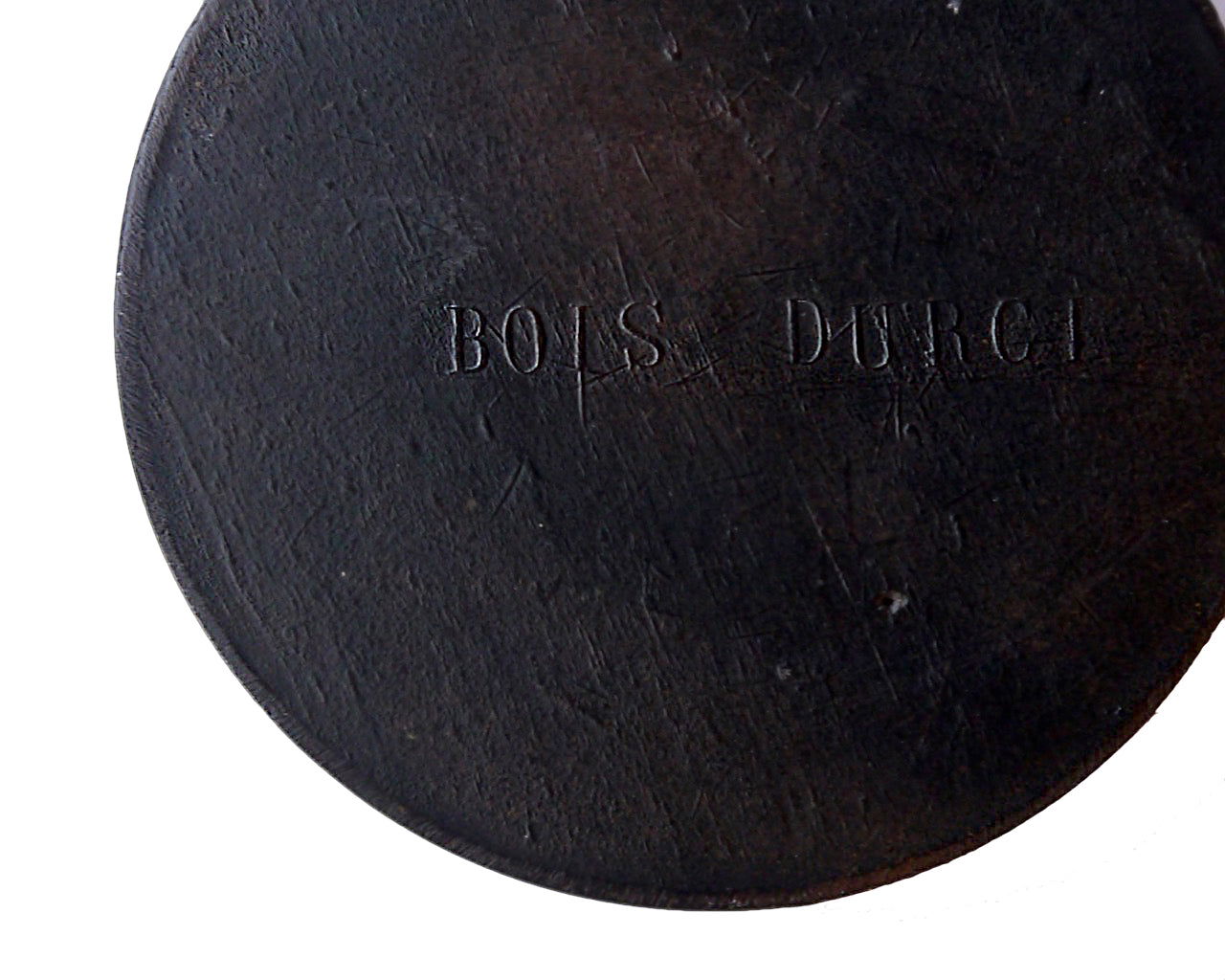Luke Honey Ltd I Royal Antiques
Victoria & Albert Bois Durci Plaques
Victoria & Albert Bois Durci Plaques
Couldn't load pickup availability
Queen Victoria & Prince Albert, Pair of Antique French Bois Durci Plaques, 1856-1875
the heads of Victoria & Albert in profile, 'PRINCE ALBERT' and 'VICTORIA QUEEN OF ENGLAND' above, and BOIS DURCI to the reverse, brass hanging loops to the tops
Diameter: 11.3cm
Reference: See Victoria & Albert Museum, plaques made by the Societié du Bois Durci, Paris, 1855-1875, (Museum No. W6-1971) for similar
Stock Code: 1856
'Bois Durci' (literally 'Hardened Wood') was patented by Francois Charles Lepage in 1856. It was an innovative attempt to produce a man-made material which could be substituted for wood. His formula was based on a mixture of animal blood (from the Parisian slaughterhouses), egg (used as a binder), powdered wood and colouring. The mixture was heated and then pressed into a mould at high heat under high steam pressure.
The finished result was a hard substance, dark brown in colour, with a pleasing glossy finish. In 1859 the Societé de Bois Durci was established in Grenelle, Paris and continued production until the end of the 19th century. Further production, under the Manufacture d'Isolants et Objects Moules continued, using the same moulds, until the 1920s, when Bois Durci began to be superseded by Bakelite.
Share



